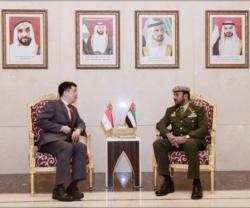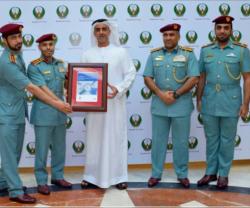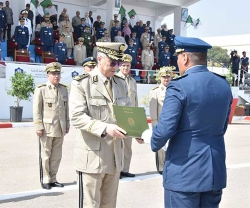The Gulf Cooperation Council (GCC) airports are in a massive expansion mode to cope with the anticipated demand.
In 2013, airports in the United Arab Emirates (UAE) are due to handle over 85 million passengers, while the Middle East airports will handle 400 million passengers a year by 2020, according to experts.
An Oxford Economics report said the aviation sector supports 224,000 jobs in the UAE, including 141,000 jobs directly supported by the aviation sector, and will provide more than 400,000 new jobs in various disciplines directly and indirectly in the next 20 years.
The Middle East has 1,029 aircraft in service, operated by 65 airlines from 70 commercial airports, according to the study. The GCC has 36 airports, including 8 in the UAE.
Aviation experts participating in the 13th edition of the Airport Show and the debut Global Airport Leaders' Forum (GALF) in Dubai in May have underscored the imperative need for launching airport leadership development programs and capacity building initiatives to meet the rapidly changing requirements of commercially-run airports.
“There remains a shortage in professional manpower because of the pace of development that we are witnessing, and we are filling these positions with foreign expertise,” said Khalifa Al Zaffin, Executive Chairman, Dubai Aviation City Corporation.
“Nonetheless, I believe the region has a sufficient number of aviation professionals to fill top-level positions, although I am not sure how long we will be able to sustain this, given the rapid growth and development of the aviation sector.”
“Intelligent leadership is a crucial factor that will enable us to achieve our long-term goals and vision. We need to maintain a pool of leaders who fully understand and are competent in managing smart technologies that we have implemented to effectively and efficiently run our airports,” he added.
“Therefore, we need to nurture leaders who are capable of maintaining our competitive advantages with regards to operating a genuinely smart airport.”
He said the UAE has done remarkably well in creating more opportunities for UAE nationals to be employed in the aviation sector.
The strong growth of Emirates airline, for instance, resulted in widespread recruitment of Emiratis across different disciplines.
Moreover, Dubai Airports and Dubai Aviation City Corporation were equally committed to expanding the Emiratization program. The aviation sector, which now accounts for around 28% of the national GDP, will certainly have a huge impact in driving the Emiratization program. The aviation leadership in the UAE has been very progressive, very open minded and really rising up to the challenge.
Al Zaffin said there was an urgent need to strengthen the human resource development initiatives in the aviation sector and we need to take advantage of both local and foreign expertise to cope with the industry's rapid growth. “Moreover, we need to build more local institutions that provide specialized aviation training.”
The forum will focus on the local market, with the aim to provide regional airport management with an opportunity to highlight skill challenges and shortages and find tangible solutions in order to develop a pool of highly-skilled Arab professionals.
Source: Emirates 24|7






















